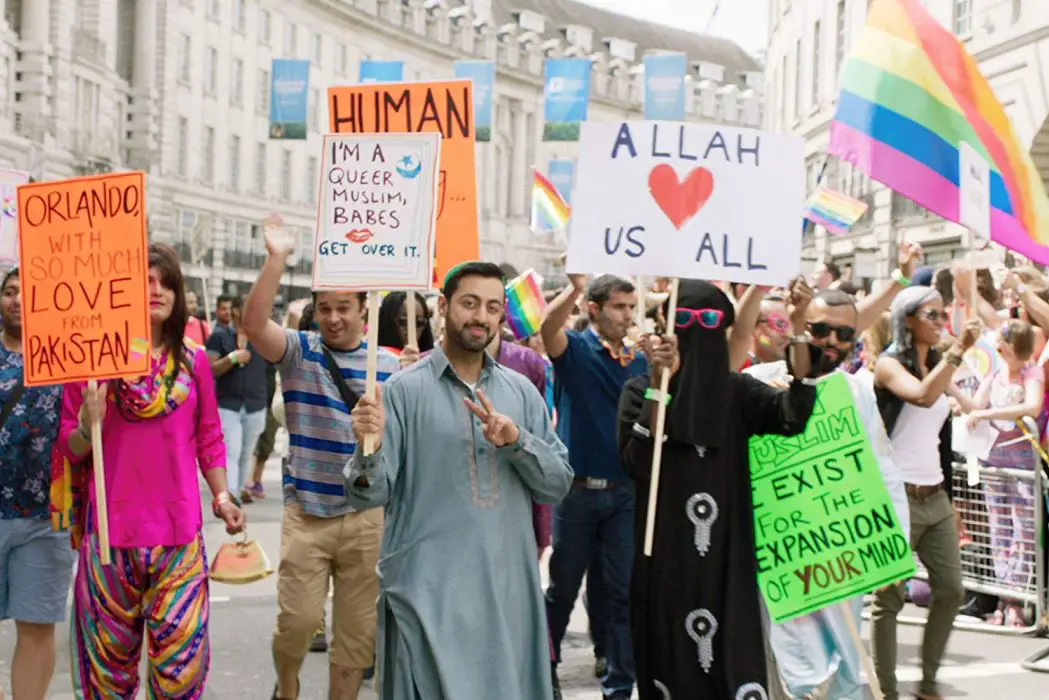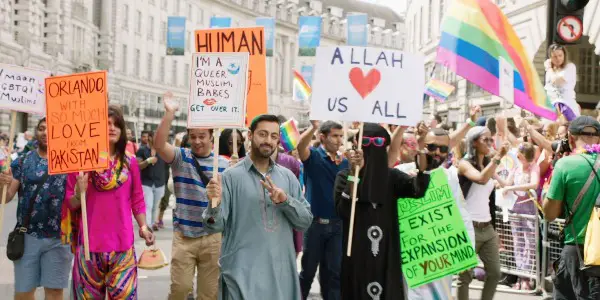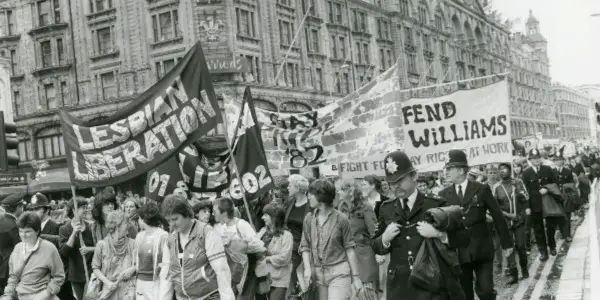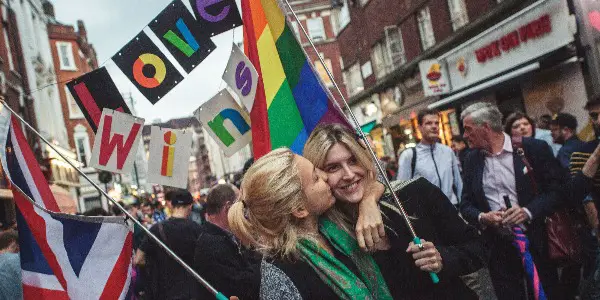ARE YOU PROUD?: A Queer Primary Education

Rahul is a 3rd year Economics student at LSE but…
Members of the queer community are often forced to feel ashamed of their identity. Are You Proud? is therefore the perfect title for a celebratory recollection of the LGBTQ+ rights movement’s landmark achievements in the fifty years since the Stonewall riots. But it also turns our attention to modern day festivities of the LGBTQ+ community, as well as the challenges we still face.
Solidarity is the movement’s soul
Director Ashley Joiner’s whistle-stop tour of the British LGBTQ+ rights movement marries archival footage with interviews. Through this format, a wide range of experiences are displayed. The struggles of WWII veteran George Montague differ from those of Jamaican asylum seeker PJ Samuels. But they, and many others featured in the documentary, are united by the discrimination they have faced for their identities.
Solidarity between marginalised groups is rightly presented as a necessity within the global queer rights movement. The Gay Liberation movement – which inspired the mobilisation of queer activists across the world – learnt from, and worked alongside, the Black Panthers and the women’s rights movement.

Joiner is fully conscious of this history, as well as the internal sexism and racism that threatened to fracture the LGBTQ+ rights movement in its earlier days. With this in mind, the intersectionality of modern activism is brought to the forefront; featured groups include LGBT Against Islamophobia, as well as organisers of Trans Pride Brighton and Black Pride.
Art and activism
In her 2018 GLAAD award acceptance speech, filmmaker Ava DuVernay spoke of how art and activism are one and the same. Are You Proud? wholeheartedly agrees. It is a piece of work that fills the essential space of educating us on the queer rights movement, for no such schooling is likely to be found in mainstream curricula.
Having spent the last three years studying at the London School of Economics, it was just two days before my graduation that I found out – through watching Are You Proud? – that the university has an extraordinary link with the LGBT rights movement. Bob Mellor (an LSE employee at the time) and Aubrey Walter visited New York in 1970 to learn how protestors and activists were rallying to promote gay and lesbian rights. Upon their return to the UK, Mellor booked a room at LSE to hold the first meeting of London’s Gay Liberation Front.

Clearly education and solidarity are core components of both Are You Proud? and the queer rights movement. How else would I have known of the bond between the queer community and the miners in the 1980s? The mutual support is understandable considering both groups’ considerable reasons to oppose Margaret Thatcher’s government. In 1984, the miners were proud to show their support for the queer community by leading the Pride Parade.
An important gateway
Are You Proud? is an important education into the queer rights movement where few other substitutes exist. But the documentary is occasionally choppy because of the way it oscillates between past and present. A more conventional, chronological approach would have more clearly demarcated the problems and challenges still facing the global queer community.

More importantly, however, it is imperative to see Joiner’s documentary as a gateway into the history of LGBTQ+ rights, rather than a comprehensive study. Given the constraints of the format, it is understandable that all bases are merely skimmed over. Are You Proud? is a comprehensive account, but he limited time devoted to the HIV/AIDS crisis, for example, only further proves the need for complementary films such as Longtime Companion, BPM and 1985.
Conclusion: Yes, I am proud
A question is posed: Are you proud? Joiner’s answer is simple: How could you not be? His documentary features the efforts of brave individuals who fought tirelessly for change. So, how could you not be proud to be part of a community that is also home to such extraordinary people?
What are your experiences with queer representation in cinema? Please share your thoughts in the comments!
In true gay fashion, Are You Proud? comes slightly late: a release during Pride Month would have been more timely. Are You Proud? is released in select UK cinemas on July 26th and available on DVD and VOD on July 29th.
Does content like this matter to you?
Become a Member and support film journalism. Unlock access to all of Film Inquiry`s great articles. Join a community of like-minded readers who are passionate about cinema - get access to our private members Network, give back to independent filmmakers, and more.
Rahul is a 3rd year Economics student at LSE but he's proficient only in binge-watching TV. He thought he should start writing about Film and TV because who wouldn't want to know his opinion? You can find his full writing and design portfolios here: https://www.rahul-reviews.com/













